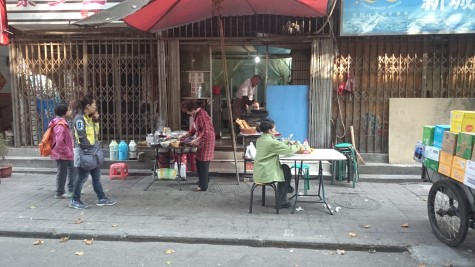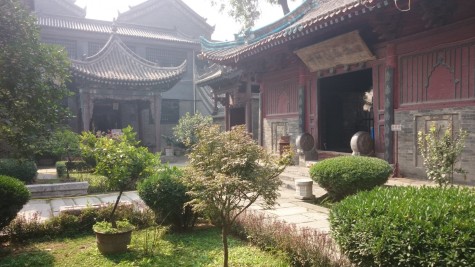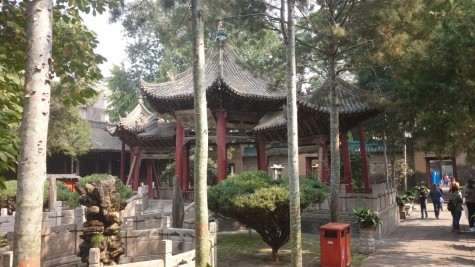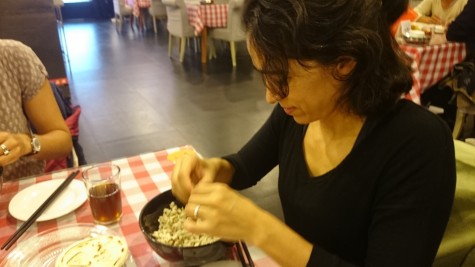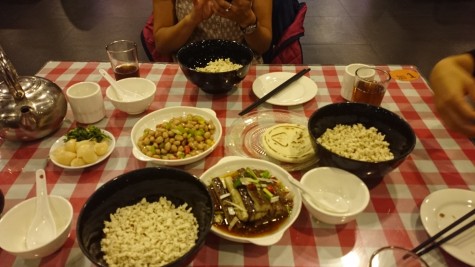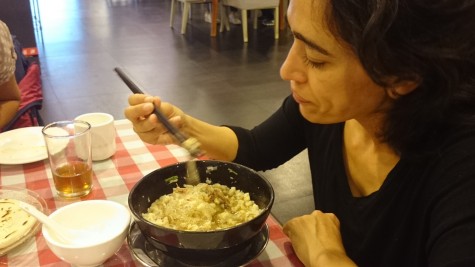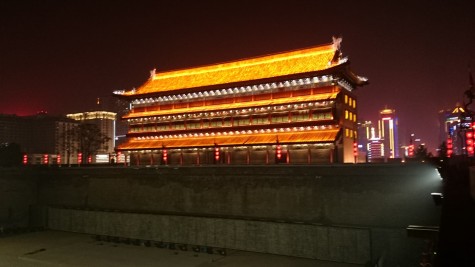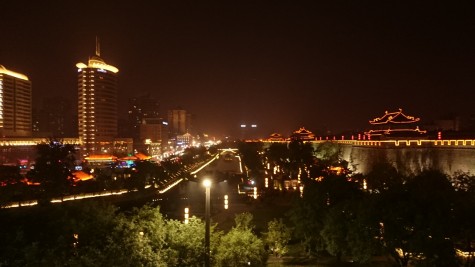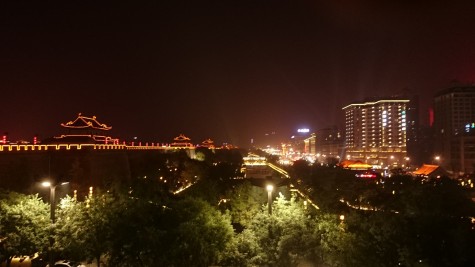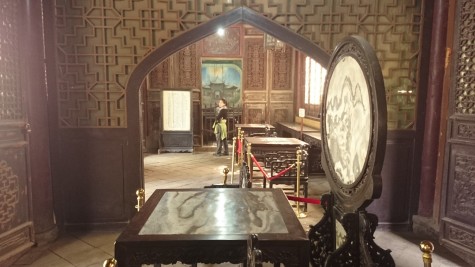 Despite having been in Xi’an for a few days, we had seen very little of the city itself. We left the city to see the Terracotta Soldiers, and the next day I stayed in while Cindy hiked a nearby mountain. Today, we would finally see the city.
Despite having been in Xi’an for a few days, we had seen very little of the city itself. We left the city to see the Terracotta Soldiers, and the next day I stayed in while Cindy hiked a nearby mountain. Today, we would finally see the city.
When you think of China, Muslims may not be the first thing that comes to mind. There is a very sizable Muslim population in China, however. It’s another carryover from the Silk Road (reminder, Xi’an is the start of it). And with Muslims come mosques. I had been to quite a few mosques in the Middle East, but never any in East Asia. Xi’an’s mosque just happened to be the Great Mosque. I was intrigued.
But first, I made Cindy eat dou jiang and you tiao.
The mosque was quite pleasant. I had no idea what to expect. In the end, it looked exactly how it should have, like a mosque in China. The architecture was mostly Chinese, but there were Islamic elements, most notably Arabic everywhere (see top picture). A series of courtyards and pagodas led to a worship room at the end, which is where services were held. The outside of the worship room looked like a building from the Summer Palace, though the inside looked like a mosque from Egypt.
After a quick street lunch, Cindy and I headed back to the hostel to relax. We were reading on the rooftop and heard some European tourists talking about their experiences in China. Something I had not noticed before is the language that Westerners use to describe Chinese/China compared to the language that Chinese use to describe Westerners/the West. For example, the Europeans were talking about breakfast. Dou jiang and you tiao isn’t exactly a common European breakfast. But the Europeans described it as “not normal.” When I thought about it more, I realized that this same language is used by the West to describe Chinese in the West. They are spoken of in terms of how they adapt and assimilate to an unspoken norm in their new locations.
Contrast this to how Chinese describe foreigners. None of my family asked me if Cindy is adapting and/or assimilating to China. Instead, they ask me if she can “get used to” China. Even the lady who served us breakfast this morning, after learning that I am Chinese and that Cindy is my wife, asked me if Cindy can get used to China.
It’s a subtle but important difference, because it identifies what is the center and what is the periphery. In both situations, the West is clearly the global center and China is clearly the periphery. The center is the norm, and people from the periphery who are in the center should adopt the center’s norms. When people from the center go to the periphery, however, they are not expected to assimilate because their own customs and habits are the norm. They should not change them just because they are in the periphery. Instead, they should simply “get used to” the periphery.
I’ll finish this extended metaphor by referencing a common Chinese childhood experience. The hostel Europeans had to get used to Chinese breakfast; I had to adopt western school lunch.
Marine was leaving that night so we had our last meal with her. Xi’an is known for rou pao mo, which is a rather different way of dining. The idea is that soup is poured over small pieces of bread, creating something in between stew and porridge. But it’s the diner’s responsibility to tear up the bread. We sat down to eat and were presented with a plate of hard flatbread and were instructed to begin tearing. Midway through, the waitress came by and reminded us to tear our bread into small pieces.
When the tearing was complete, the waitress took our bowls away and added the soup. The meal was delicious, though part of it might have been due to the extra 20 minutes we had to wait because we were busy tearing up the bread. At a nearby table, we saw our waitress tell a couple she would not add soup to their bowls because their bread pieces were not small enough. They looked disappointed and continued to tear.
After dinner we bid bon voyage to Marine, who had to catch an overnight train. Cindy and I continued to the southern gate of the old Xi’an city walls. The top of the wall is lit very nicely at night and was a nice spot to end the day.

 Español
Español